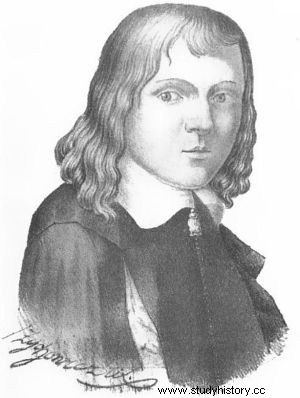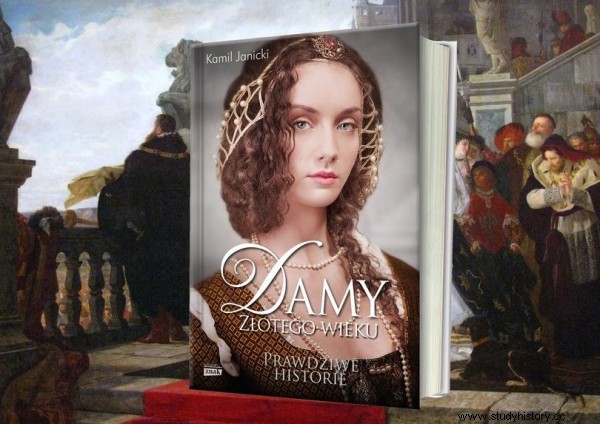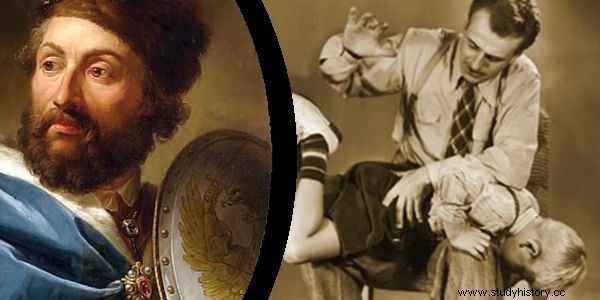Most historians would not hesitate even for a moment when asked to select the most outstanding Jagiellon. Kazimierz Jagiellończyk did not gain fame comparable to Jagiełło, but it was he who brought the Teutonic Order to its knees and extended the influence of his family to half of Europe. At the same time, he was probably the worst father of all Polish rulers.
"His delicacy and surprisingly accessible character won him the love of his subjects." This is how Kazimierz Jagiellończyk is characterized by the educational treatise On the Upbringing of the Prince, written a few years after his death. The great king serves as a model for the next generations of Jagiellonians.
He is a generous, helpful and kind-hearted monarch. And on top of that - deeply religious, of course (after all, "nothing wins the hearts of the people more than the conviction of their religiosity"). There is no scratch in his image, and the recommendations contained in the text seem completely harmless. Some of them are still valid today.
Advice is good even today
The author of the treatise suggests that "no time is more suitable for study than in the morning", and that children should go to bed as early as eight o'clock. It's hard to argue with that.
Likewise, it is impossible to question the advice that a prince is required to show respect to his teachers and to maintain a seriousness that is appropriate to his birth. Doubts are also raised by the way in which the recommendations are implemented.

Stanisław Orzechowski in a nineteenth-century, of course, made up portrait. It was this gentleman who praised the sadism of Kazimierz Jagiellończyk.
Several decades later, the famous Renaissance journalist, Stanisław Orzechowski, took advantage of the occasion of the death of the last of Kazimierz's sons, Zygmunt Stary .
In a long funeral speech, he decided to present all the advantages of traditional, medieval education - exactly the kind that took place at the court of Kazimierz Jagiellończyk under the supervision of Jan Długosz. They make a hair on the head.
Sadist dentist? This is nothing compared to the sadist chronicler
According to Orzechowski, in the school at that time, organized for the needs of the royal sons:"there was none of these things that make young people go into crime.
The vigilant teacher diligently protected the ears of these kings from hearing bliss, and the eyes from looking at them. If necessary, a reprimand, ridicule of objection, flogging - yes, flogging! - they were the means of accompanying and supporting this education. ”

The article was written in connection with the book by Kamil Janicki "Ladies of the Golden Age" (Horizon Label 2014). Buy with a discount on empik.com.
Education in Długoszów was based on prohibitions, fear and pain. And, of course, on the constant, mechanical repetition of prayers, sentences that build anecdotes from the history of Poland. There was no room for any entertainment or enjoyment. As explained by the nineteenth-century historian Antoni Danysz:
Royal abundance and luxury were not applied to their upbringing. The greatest modesty prevailed in their food, clothes and way of life.
Apparently, guests staying at Wawel were not even able to distinguish the royal sons from ordinary courtiers. Future rulers were not allowed to hear poems, merry music, and could not take part in popular court games. Any deviation from the rules was subject to physical punishment.
A good king, he beat children
"Older people used to tell about Kazimierz that he enjoyed his son's crying when he was beating him with a rod "- reported Stanisław Orzechowski. Has such harsh and ruthless education brought good fruit? Not necessarily.

Kazimierz Jagiellończyk. A good king? Definitely. A good father? Not necessarily…
Władysław Jagiellończyk is still considered one of the worst Hungarian kings. Undecided, without ambition and a hint of independence. Zygmunt Stary, who ruled Poland, turned out to be equally ravenous. Throughout his career, he allowed enemy spies to manage the politics of the Republic of Poland. He was famous for being a "silent" who, instead of making decisions, always "thinks".
Jan Olbracht, who ruled a few years before him, did not even decide to get married for fear of his mother's reaction. Thus well-educated (and beaten in childhood) rulers led the Jagiellonian dynasty in a very specific direction - straight to the edge of the abyss.
Source:
You can learn more about the dark causes of the Jagiellonians in Kamil Janicki's book. Ladies of the golden age (Horizon Label 2014). The article is based on the literature and materials collected by the author during the work on the book. You can buy it with a discount on empik.com.

We recommend:
A different version of the above article appeared in the latest, Christmas issue of "Newsweek Historii".
